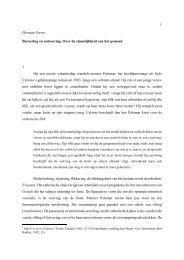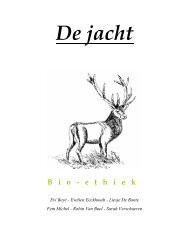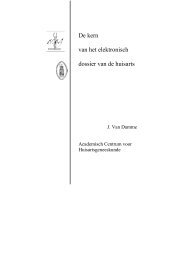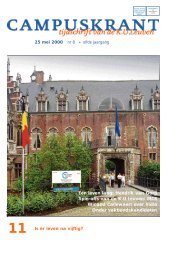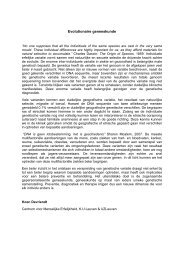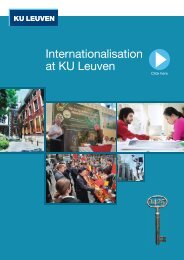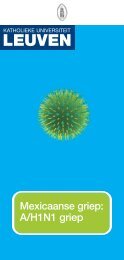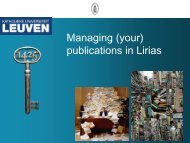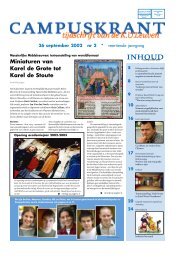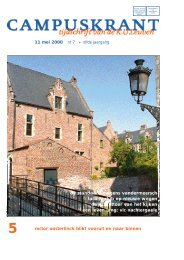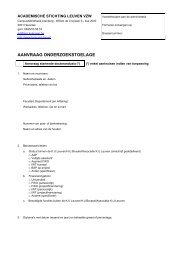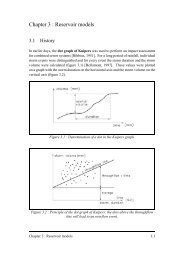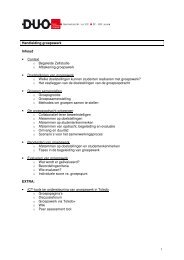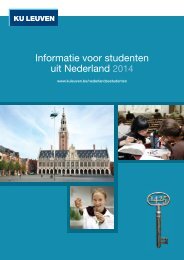EQUALITY GUIdE - KU Leuven
EQUALITY GUIdE - KU Leuven
EQUALITY GUIdE - KU Leuven
You also want an ePaper? Increase the reach of your titles
YUMPU automatically turns print PDFs into web optimized ePapers that Google loves.
130 Equality Guide<br />
an expression of respect towards the former employee but also provide the management<br />
with unique feedback on the lock, stock and barrel of the institution. As all institutions<br />
and organisations world-wide, especially highly competitive settings, are confronted<br />
with a gender gap in career advancement, exit-surveys prove to be a useful tool<br />
to pinpoint the obstacles women experience and can help to take apt measures to<br />
make highly talented employees stay.<br />
5.5.1. Prospects for further research<br />
! Although both PhD-students and other employees were contacted and the respondents<br />
differed greatly in age, only junior researchers and post-docs returned the<br />
completed questionnaire. In future applications of this instrument it would be advisable<br />
to try to reach former employees who held a professorship, but left the university<br />
nevertheless.<br />
! In the questionnaire, the researchers were asked whether they wanted to return to<br />
Ghent University or not. The answers given during the interview sometimes differed<br />
from the filled-in answers. As mentioned above, it might be useful to put the question<br />
more specifically, e.g. whether they wish to advance their career in university or<br />
not.<br />
! As the goal of this research was to obtain a general view of the reasons to leave<br />
Ghent University and the gender differences in work satisfaction and career development,<br />
both former employees who wanted to advance their career at Ghent University<br />
and researchers who voluntarily left Ghent University were interviewed. Future<br />
research could either deal with a selected group of respondents who did not<br />
think of an academic career from the start, in order to get a better view of the reasons<br />
to quit, or with a group of respondents who wanted to advance their careers in<br />
the academic world but could not, in order to get a better view of the obstacles they<br />
came across. However, the problem with the latter group is that many do not know<br />
whether they could or would make the efforts to stay. When a position would be<br />
offered to them, they would like to continue, but many are wary of the potential job<br />
insecurity afterwards. A quantitative survey, based on this qualitative research and<br />
addressed to all departing employees could provide a solution.<br />
! As this qualitative survey primarily dealt with past experiences and opinions on<br />
gender in academic circles, it is advisable to complement this study with a quantitative<br />
research in order to study the importance of personal contacts, the number of<br />
publications, full-time work, international experience, role models or visibility for the<br />
advancement of a career in academic circles. In addition, it would be recommended<br />
to interview not only male and female employees who have left the institution,<br />
but also researchers who are still employed. In this way, issues such as the<br />
work-life balance and necessity of networks and support could be investigated from<br />
a different perspective.



